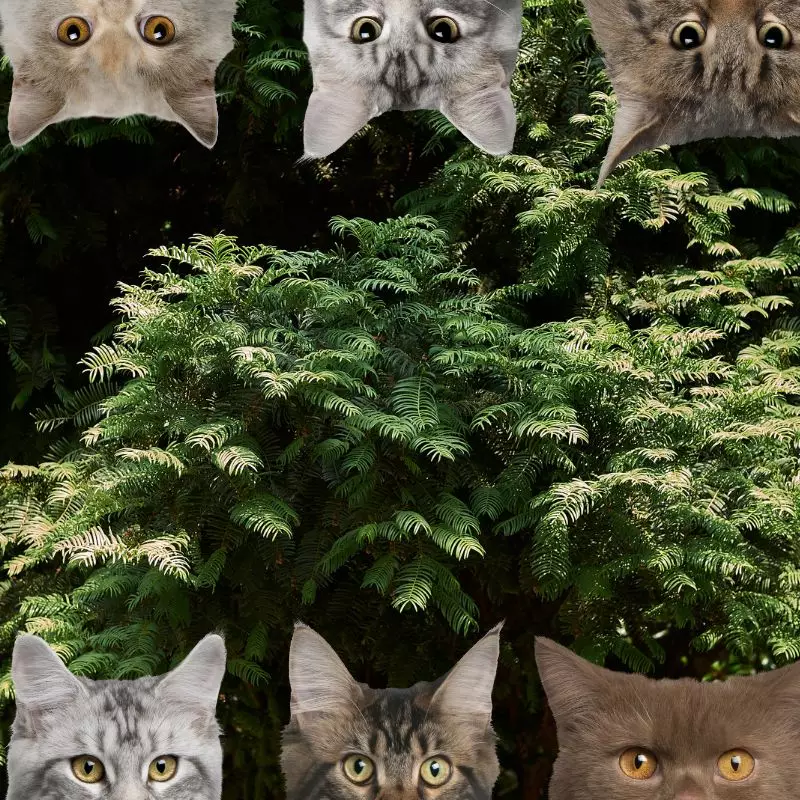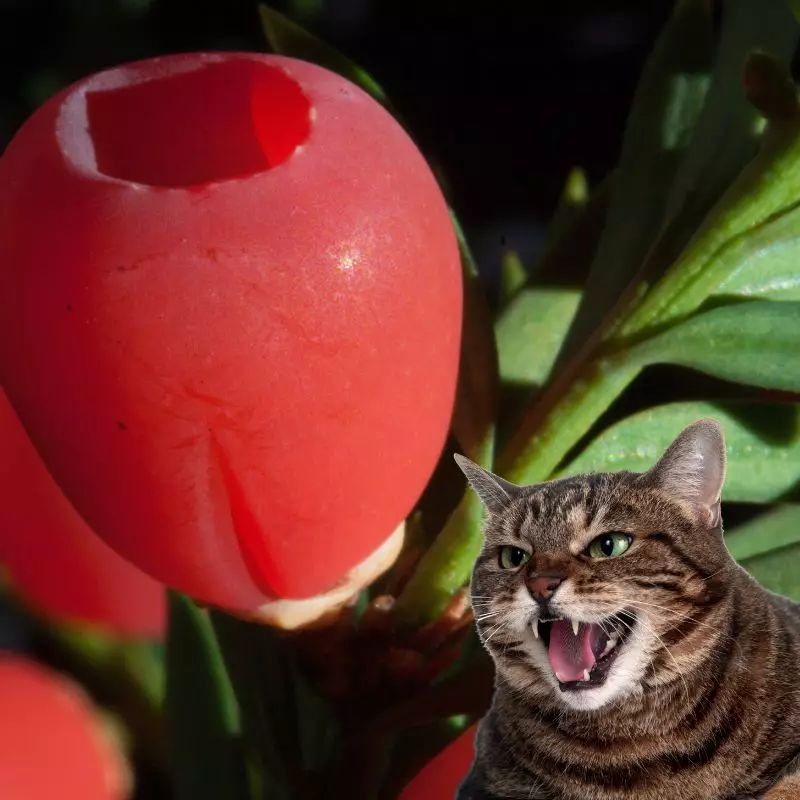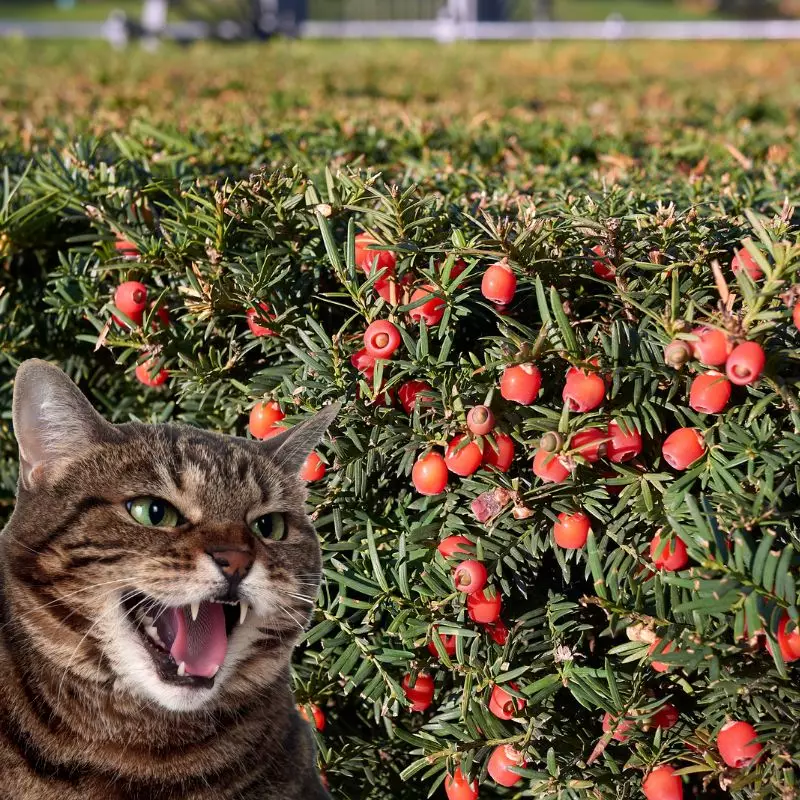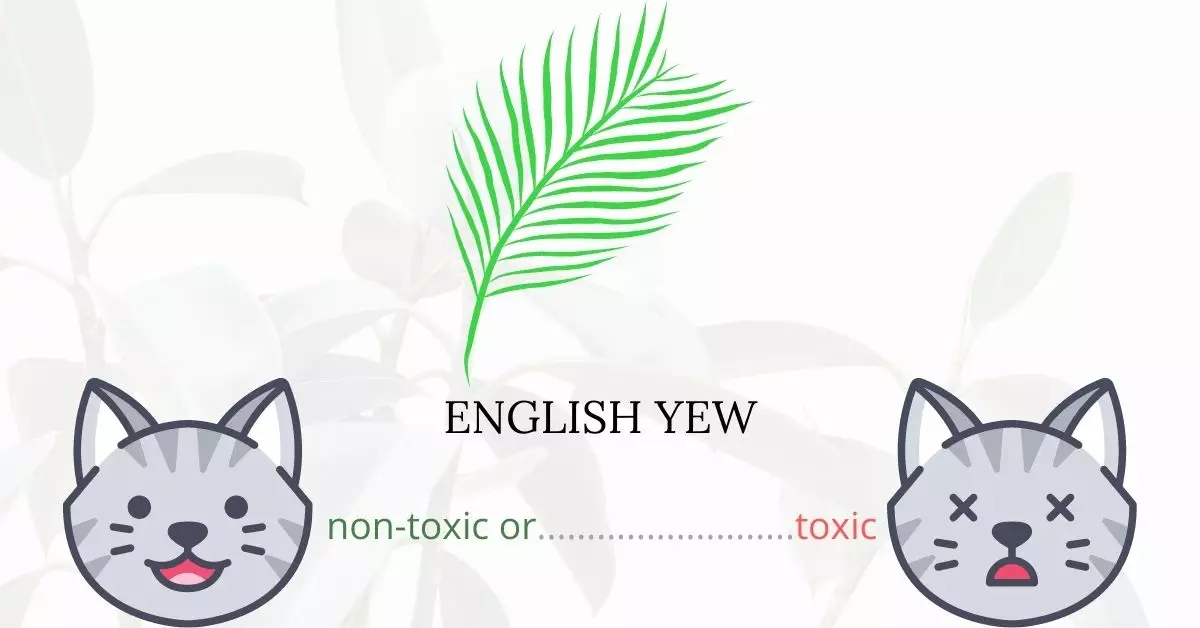Yes, the English Yew is toxic to cats. English Yew, also known by its various common names such as Western Yew, Pacific Yew, Japanese Yew, and Anglo-Japanese Yew, is an evergreen plant. It contains substances like taxine A and B, as well as volatile oil, all of which are harmful to animals, especially cats. Almost every part of the plant, including the leaves, seeds, and stems, contains these toxins. The only exception is the aril, which is the seed covering; this portion of the plant is not harmful. While the volatile oil’s unpleasant taste might deter cats from consuming large quantities, it’s important to note that even a small ingestion can be toxic and lead to severe symptoms.
This article has been crafted with the assistance and collaboration of a team of experienced DVMs (doctors of veterinary medicine). Through their expertise, we ensure that the information presented is accurate and current. Our research encompasses insights from high-authority websites such as the ASPCA and PetMD, providing a comprehensive understanding of the potential risks plants like English Yew pose to cats.
Clinical Signs of English Yew Poisoning in Cats

When a cat comes into contact with or ingests parts of the English Yew plant, various symptoms can manifest due to the plant’s toxic substances. Understanding these signs is crucial for immediate intervention:
- Drooling: This is a common reaction when a cat consumes something bitter or irritating. The presence of volatile oils and toxins in the English Yew can stimulate excessive salivation as the cat’s body tries to expel the irritant.
- Vomiting: After ingestion, the toxins can irritate the cat’s gastrointestinal tract, leading to nausea and eventual vomiting.
- Lethargy and Weakness: As the toxins circulate and start affecting the cat’s system, they may feel fatigued and show signs of physical weakness.
- Tremors: The toxic compounds can interfere with the cat’s neuromuscular functions, leading to involuntary muscle contractions or tremors.
- Difficulty Breathing: The toxins can also affect the respiratory system, leading to inflammation or direct respiratory distress.
- Seizures: High levels of toxins can lead to neurological disruptions, causing seizures or convulsions.
- Dilated Pupils: Neurological effects of the toxins can also manifest in the eyes, causing pupils to dilate unexpectedly.
- Coma: In severe cases, the neurological disruptions can escalate, leading to a state of unresponsiveness or coma.
- Unusual Aggressive Behavior: Behavioral changes can be a direct result of the neurological effects of the toxin, causing the cat to act out of character.
- Sudden Death Due to Acute Heart Failure: Perhaps the most alarming effect, the toxic elements in the English Yew can severely affect the cat’s cardiac functions, leading to acute heart failure and sudden death.
If you suspect your cat has come into contact with or ingested English Yew, it’s imperative to consult a veterinarian immediately. Even if only a few symptoms are present, timely intervention can be life-saving.
First Aid and Treatment of English Yew Poisoning in Cats

Your veterinarian may induce vomiting to aid in the removal of the toxin from your cat’s system. Inducing vomiting in cats that have consumed huge amounts of the herb, on the other hand, may not be possible due to heart and nervous system issues. Instead, your veterinarian may opt for gastric lavage.
Intravenous fluid therapy is required if your cat has lost a lot of fluid. Activated charcoal and medications for seizure prevention and gastrointestinal protection may also be given to your cat by the veterinarian. Additional treatment alternatives may be considered depending on the extremities of your cat’s symptoms.
Recovery from English Yew Poisoning in Cats

If your veterinarian has recommended dietary adjustments, make sure you follow them to ensure your cat is getting enough nourishment while recovering. Your cat’s recuperation time will be determined by how promptly he or she was treated.
Prevention of English Yew Poisoning in Cats
Restrict your cat from going outside your house to lessen his or her exposure to English yew and other toxic plants in your area. Keep them well maintained and healthy inside your home.
If you love plants but have cats at home, check out these lists:





